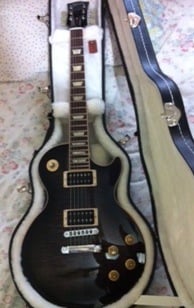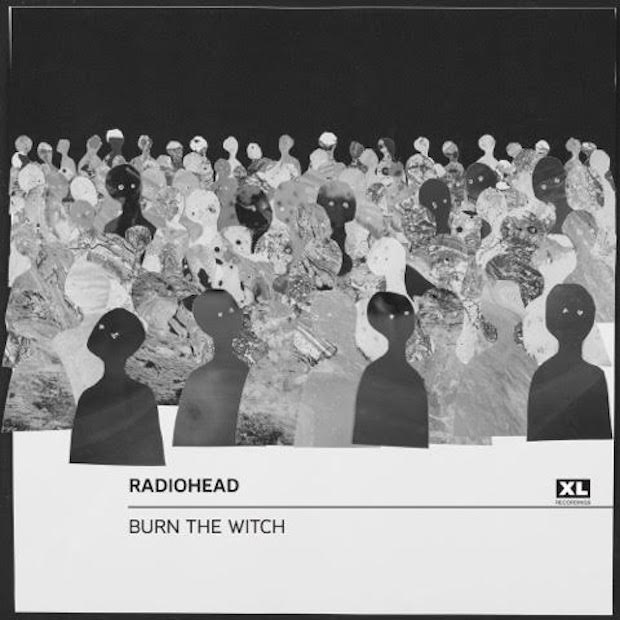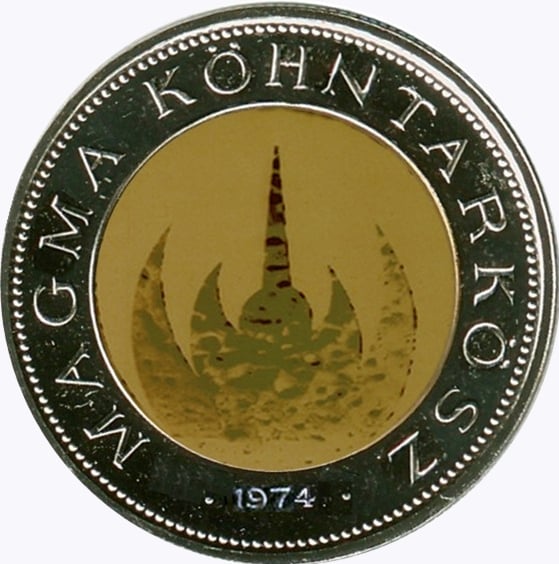Progarchives.com has always (since 2002) relied on banners ads to cover web hosting fees and all.
Please consider supporting us by giving monthly PayPal donations and help keep PA fast-loading and ad-free forever.
/PAlogo_v2.gif) |
|
Post Reply 
|
Page 12> |
| Author | ||||
zappaholic 
Forum Senior Member 

Joined: March 24 2006 Location: flyover country Status: Offline Points: 2822 |
 Topic: what means the sufix /age/ in Language Topic: what means the sufix /age/ in LanguagePosted: April 21 2014 at 17:05 |
|||
This slang usage of "-age" may originally have been propagated by the punk band the Descendents, who used it frequently throughout the '80s, in the same way that more recent mainstream slang has used it. (They even called a live album Liveage!) |
||||
|
"Democracy is the theory that the common people know what they want, and deserve to get it good and hard." -- H.L. Mencken
|
||||
 |
||||
Dean 
Special Collaborator 

Retired Admin and Amateur Layabout Joined: May 13 2007 Location: Europe Status: Offline Points: 37575 |
 Posted: April 21 2014 at 02:31 Posted: April 21 2014 at 02:31 |
|||
|
I've thought of a great one...
 |
||||
|
What?
|
||||
 |
||||
Dean 
Special Collaborator 

Retired Admin and Amateur Layabout Joined: May 13 2007 Location: Europe Status: Offline Points: 37575 |
 Posted: April 20 2014 at 20:31 Posted: April 20 2014 at 20:31 |
|||
Partially, adding -age to an existing noun or verb converts it to a mass noun (ie a non-count noun) so in a sense it is a mass collection because it converts the word store into an object that cannot be counted. This means it does not have a plural form, you can say that a closet has storage or lots of storage or some storage but you would not say it has a storage or 5 storages. Adding "-age" to "store" produces a mass noun that describes the action of the word store ("stores are for storage", "this store has lots of storage")
They are all nouns that describe still the action of the root word. Stoppage is the act of stopping; Breakage is the act of breaking ...etc. Stoppage, Breakage, Leakage and Slippage can be either mass nouns (there has been some breakage) or count nouns, usually when used in the past tense (there were 5 breakages).
Even though tuneage is a made-up hipster slang word and is a somewhat artificial creation of a mass noun, it still follows the form of converting the word "tune" into a mass noun by describing the (admittedly abstract) action of a tune. Unfortunately that doesn't necessarily work with all hep slang words ending age, such as foodage (a mass noun but not really the action of food), but does work with drinkage, eatage and munchage.
Baggage is the the act of bagging, package is the act of packing - both are mass nouns that can also be count-nouns (you could add luggage too, and amusingly enough, that really does mean the act of lugging). |
||||
|
What?
|
||||
 |
||||
HackettFan 
Forum Senior Member 

Joined: June 20 2012 Location: Oklahoma Status: Offline Points: 7946 |
 Posted: April 20 2014 at 19:16 Posted: April 20 2014 at 19:16 |
|||
|
Store + age = Storage
I always think of -age as conveying a mass collection of things as above (a collection of things that have been stored, but that's not always the case: e.g. Stop + age = Stoppage, Break + age = Breakage, Leak + age = Leakage, Slip + age = Slippage these all seem to pertain to a location of interest on or within some object. Awhile back we had a productive use of -age: Tune + age = Tunage. A collection of tunes that someone has on hand. This example adds -age to something that's already a noun (I say that because the verb form does not seem to be as relevant). However, the same may have happened with 'baggage' or 'package', although 'bag' and 'pack' can be verbs too. It doesn't work for 'package', but notice that 'baggage' is never a single bag. It is a collection of bags that one has on hand. Edited by HackettFan - April 20 2014 at 19:24 |
||||
 |
||||
Polymorphia 
Forum Senior Member 

Joined: November 06 2012 Location: here Status: Offline Points: 8856 |
 Posted: January 22 2014 at 21:33 Posted: January 22 2014 at 21:33 |
|||
 |
||||
 |
||||
Atkingani 
Special Collaborator 

Honorary Collaborator / Retired Admin Joined: October 21 2005 Location: Terra Brasilis Status: Offline Points: 12288 |
 Posted: January 22 2014 at 19:07 Posted: January 22 2014 at 19:07 |
|||
|
It's a common feature for the so-called "Latin languages" (Romance or Romanic or Neo-Latin languages). Compare: voyage (French), viaggio (Italian), viagem (Portuguese), viaje (Spanish).
The suffix or ending -age entered English via French as mentioned above. Actually this ending comprises a couple of Latin suffixes: -aticum (viaticum, hence viaggio, voyage, etc), -inis (cartilaginis), etc.
|
||||
|
Guigo
~~~~~~ |
||||
 |
||||
Polymorphia 
Forum Senior Member 

Joined: November 06 2012 Location: here Status: Offline Points: 8856 |
 Posted: January 20 2014 at 12:18 Posted: January 20 2014 at 12:18 |
|||

|
||||
 |
||||
someone_else 
Forum Senior Member 

VIP Member Joined: May 02 2008 Location: Going Bananas Status: Offline Points: 23993 |
 Posted: January 20 2014 at 11:52 Posted: January 20 2014 at 11:52 |
|||
Maybe it is related to the French word gare (station)...
|
||||

|
||||
 |
||||
timothy leary 
Forum Senior Member 

Joined: December 29 2005 Location: Lilliwaup, Wa. Status: Offline Points: 5319 |
 Posted: January 20 2014 at 11:11 Posted: January 20 2014 at 11:11 |
|||
|
Most of them come from France as does garage
|
||||
 |
||||
Dean 
Special Collaborator 

Retired Admin and Amateur Layabout Joined: May 13 2007 Location: Europe Status: Offline Points: 37575 |
 Posted: January 20 2014 at 11:07 Posted: January 20 2014 at 11:07 |
|||
Prolly something to do with shelter, garret and garrison come to mind but I cannot think of the root word (I could look it up, then so could you). I suspect it is a relatively modern word (because I cannot think I've ever seen the word used in any other context), so it may just be an invented word that not have a clear etymology heritage.
|
||||
|
What?
|
||||
 |
||||
Polymorphia 
Forum Senior Member 

Joined: November 06 2012 Location: here Status: Offline Points: 8856 |
 Posted: January 20 2014 at 10:02 Posted: January 20 2014 at 10:02 |
|||
 I like how Dean has become our etymology search engine in this thread. I like how Dean has become our etymology search engine in this thread.Gar-age? Your move, Dean.  Edited by Polymorphia - January 20 2014 at 10:03 |
||||
 |
||||
someone_else 
Forum Senior Member 

VIP Member Joined: May 02 2008 Location: Going Bananas Status: Offline Points: 23993 |
 Posted: January 20 2014 at 10:00 Posted: January 20 2014 at 10:00 |
|||
 
|
||||

|
||||
 |
||||
Dean 
Special Collaborator 

Retired Admin and Amateur Layabout Joined: May 13 2007 Location: Europe Status: Offline Points: 37575 |
 Posted: January 20 2014 at 09:57 Posted: January 20 2014 at 09:57 |
|||
Simples. from the Latin Missus, to send (same root as missive) therefore a message is a something that you send.
 |
||||
|
What?
|
||||
 |
||||
progbethyname 
Forum Senior Member 

Joined: July 30 2012 Location: HiFi Headmania Status: Offline Points: 7750 |
 Posted: January 20 2014 at 09:40 Posted: January 20 2014 at 09:40 |
|||
|
I sense there is now a pretty good understanding in this matter.
Knowl--Age. (Just kidding) 
|
||||
|
Gimmie my headphones now!!! 🎧🤣
|
||||
 |
||||
Andy Webb 
Special Collaborator 

Retired Admin Joined: June 04 2010 Location: Terria Status: Offline Points: 13298 |
 Posted: January 20 2014 at 09:39 Posted: January 20 2014 at 09:39 |
|||
|
^Of course meaning that talking to people is too much of a mess so we shouldn't bother.
|
||||
 |
||||
someone_else 
Forum Senior Member 

VIP Member Joined: May 02 2008 Location: Going Bananas Status: Offline Points: 23993 |
 Posted: January 20 2014 at 09:23 Posted: January 20 2014 at 09:23 |
|||
|
Mess... age

|
||||

|
||||
 |
||||
Dean 
Special Collaborator 

Retired Admin and Amateur Layabout Joined: May 13 2007 Location: Europe Status: Offline Points: 37575 |
 Posted: January 17 2014 at 12:39 Posted: January 17 2014 at 12:39 |
|||
|
..exactly. Possibly from Garbe - the entrails of an animal - here the "age" would be the rarer a collective use so garbe-age would be a collection of entrails. Contrasting this with Silage ... meaning fodder in a silo
|
||||
|
What?
|
||||
 |
||||
timothy leary 
Forum Senior Member 

Joined: December 29 2005 Location: Lilliwaup, Wa. Status: Offline Points: 5319 |
 Posted: January 17 2014 at 12:32 Posted: January 17 2014 at 12:32 |
|||
|
Garb.....age
|
||||
 |
||||
Dean 
Special Collaborator 

Retired Admin and Amateur Layabout Joined: May 13 2007 Location: Europe Status: Offline Points: 37575 |
 Posted: January 17 2014 at 12:19 Posted: January 17 2014 at 12:19 |
|||
|
^ What he said.
It is a suffix that is added to a word to make a noun that describes the action of that word so 'language' the word root would be 'langu' which comes from 'lingua' (of the tongue) so language is an action created by the tongue, ie speech. Lineage is the action of a line and is not related to time. Most words ending in -age entered into the English language from French, the equivalent Germanic suffix is -ing
Edited by Dean - January 17 2014 at 12:22 |
||||
|
What?
|
||||
 |
||||
dr wu23 
Forum Senior Member 

Joined: August 22 2010 Location: Indiana Status: Offline Points: 20451 |
 Posted: January 17 2014 at 09:34 Posted: January 17 2014 at 09:34 |
|||
|
One does nothing yet nothing is left undone.
Haquin |
||||
 |
||||
Post Reply 
|
Page 12> |
| Forum Jump | Forum Permissions  You cannot post new topics in this forum You cannot reply to topics in this forum You cannot delete your posts in this forum You cannot edit your posts in this forum You cannot create polls in this forum You cannot vote in polls in this forum |